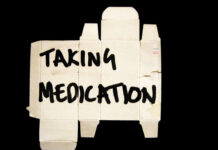“Let’s Talk Withdrawal” Podcast
Being in antidepressant withdrawal, I had come to feel very isolated and alone. What I needed was to hear real experiences of people who, like me, have struggled with the very drugs that they believed were going to help them. It was time to create a podcast.
Public Petition: Support for People Affected by Prescribed Drug Dependence
People from any country can sign our petition until May 10th, then it will be lodged for consideration and further action by the Scottish Parliament Petitions Committee. This promises to be an interesting process — one which we hope will have a much wider impact.
Trump Appoints Leader who Campaigned for Involuntary Outpatient Drugging
This appointee criticizes our social change movement, especially our dedication to empowering peer support and our concerns about psychiatric drugs and labeling. It is important for everyone who supports human rights to speak up and oppose this approach. Please phone your Senators to block this confirmation.
Our Letter to Lancet Psychiatry
This is the cover letter that Mad in America Foundation sent to Niall Boyce, editor of Lancet Psychiatry, requesting that the journal retract Martine Hoogman's study of "subcortical brain volumes" in those diagnosed with ADHD.
Providing Trauma Informed Brief Counseling to College Students
Recommendations on how to provide trauma-informed, short-term counseling to college students who have experienced sexual assault and interpersonal violence.
The Unforeseen Relationship: Psychiatric Medication and Spirituality
In 2015 I completed a qualitative research study exploring the interrelationship between psychiatric medication and spirituality. The key finding was that people were engaging spiritually with their prescriptions in ways that significantly impacted the course and outcome of recovery.
Researchers Fail to Predict Criminal Intent with Brain Scans
A new study in the journal PNAS explores whether brain scans are ineffective at identifying criminal intent in carefully designed situations.
‘Enough is Enough’ Series: LSD Reconsidered
Biochemical psychiatry is now moving in an unfortunate, potentially dangerous, yet predictable direction. It has run out of new drugs to try, so it's turning to psychedelic drugs, suggesting that they hold promise in the treatment of substance use 'disorders.'
Opening a Dialogue about Early Psychosis Programs in the US
It is very encouraging to observe the spread of early psychosis programs to many states and communities throughout the United States. I hope that someday there are programs in all 50 states, not just 34, and that there are literally thousands of these programs not a hundred.
Study Explores Cognitive Effects of Antipsychotics
Reduced usage of antipsychotics in first-episode psychosis was associated with improved executive functioning.
What if the Folly is in Us, Too?
Faced with behavior different from our own or from our expectations, all of us feel that urge to “do something”—an act that is one of the beginnings of prejudice, a malignant virus that all of us have trouble shaking free of. We doctors, especially, want to do something: It’s what we’ve been trained to do.
Could ‘Treatment Resistance’ be an Effect of Antidepressants?
Previously taking antidepressants could make individuals less likely to respond to treatment for bipolar II depression.
Anti-Authoritarian Options for Suicidal Anti-Authoritarians
Many teenagers and young adults (the group for whom suicide is the second leading cause of death) are anti-authoritarians. For them, the idea that they're experiencing a crisis of self rather than a mental illness can reduce their pain, increase their hope and open them up for dialogue.
Veterans with both PTSD and Dementia More Likely to be Prescribed Antipsychotics
Researchers found that veterans with both conditions had higher odds of being prescribed second-generation antipsychotics than those presenting with just PTSD.
The Downfall of Peer Support: MHA & National Certification
Mental Health America (MHA) has finally unveiled its new National Peer Specialist Certification over much protest. It is dangerous to what we call ‘peer support’ for MHA to have done this. Even if they did it well. Which, as best as I can tell, they did not.
New Findings Suggest Masculinity is a Risk Factor for Suicidal Thinking
Men who report being self-reliant may be at greater risk of suicidal thinking.
Would You Want Your Therapist to be Honest?
If a therapist is honest about their triggers, they risk equalizing the power imbalance. They risk being on the same plane as their client. If the therapist has triggers too, they may end up being as “bad” as the client’s, and then what? Then who is the healer?
Added Evidence for Yoga for Major Depression
Randomized controlled trial finds yoga intervention reduces depression severity.
Reducing Overuse of Low-Value Treatments
Researchers provide an action-planning framework to engage providers in the reduction of low-value healthcare.
Physical Activity Predicts Fewer Symptoms of Depression in Children
An article published in Pediatrics is the first to examine the relationship between physical activity and depression in middle childhood (years 6 to 10) longitudinally.
The Best Medicine
Today I am not only medication-free but also thriving. While many people in my life are delighted by my transformation, most did not think it possible. How did I transition from being a chronic, "seriously mentally ill" psychiatric patient to a vibrant being?
Researchers Make a Case for a “Theory of Nothing” in Psychology
What meaning do psychological constructs really hold, and how are they operationalized and statistically modeled within psychology research?
Dear Boston Globe, Part VI: Congratulations. Bad Things Happen.
Yes, people are dying, but not typically in the manner you so salaciously describe in every blood-lusting Globe article you write. They're entering the system when they’re younger, getting stuck in that service, and then dying early (or transferring to nursing homes), unseen by the public eye.
From One Parent to Another
In the couple of years since my daughter Rebecka and I published our book, I have received many emails, Facebook messages and phone calls from despairing parents. They want to know, how did you get through it? What do you suggest? What else can we try?
Danish Study Finds Better 10-year Outcomes in Patients Off Antipsychotics
Study finds that 74% of patients with a psychotic disorder off antipsychotics at end of 10 years are in remission.

































